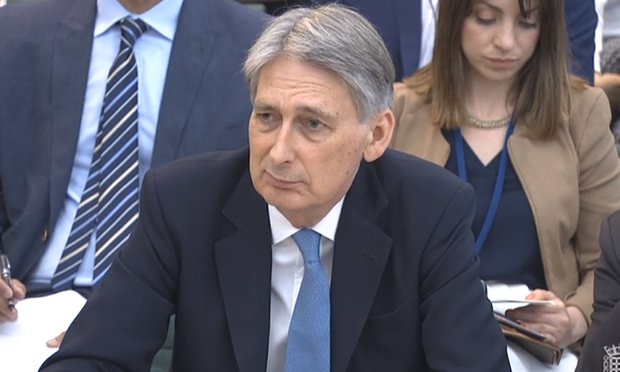Source: The Guardian
Philip Hammond says decision to remove supporters of Ba’ath party from army was biggest mistake of post-conflict planning
The UK has stepped up its criticism of the American conduct of the Iraq war, with the foreign secretary saying the single most disastrous mistake was the mass removal of supporters of the Ba’ath party from the Iraqi army, which he claimed had led directly to the formation of Islamic State.
“Many of the problems we see in Iraq today stem from that disastrous decision to dismantle the Iraqi army and embark on a programme of debaathification,” Philip Hammond, the foreign secretary, told the foreign affairs select committee.
“That was the big mistake of post-conflict planning. If we had gone a different way afterwards we might have been able to see a different outcome.”
He added: “It is clear a significant number of former Ba’athist officers have formed the professional core of Daesh [Isis] in Syria and Iraq and have given that organisation the military capability it has shown in conducting its operations.”
He said the current regime of Haider al-Abadi, the Iraqi prime minister, had “a clear policy to reverse and to end the debaathification programmes and reintegrate Ba’athists into civic life but he is unable to get through the political system because it has become a touchstone of the Sunni-Shia divide in Iraq”.
Ann Clwyd, a Labour MP on the committee and a strong supporter of the Kurds in Iraq, revealed that in 2003 she had personally gone to lobby Paul Bremer, the US head of the Coalition Provisional Authority, the body overseeing the administration of Iraq, about the Iraqi army issue. She said she had complained that senior Iraqi professional soldiers, some with family backgrounds in the UK, were being pushed aside even though some of them were “willing to help in the changed circumstances”.
She said: “We should have been much tougher with the Americans in Baghdad and not accepted decisions without protesting.” The Chilcot report suggests the UK protest over the US decision was relatively mild and ignored by the Americans.
Hammond replied: “The reality on the ground was that Americans were a much larger contributor to the military effort and were a much larger presence. That should not stop us from expressing an opinion and arguing it forcefully but realpolitik tells me that he who contributes ten times as many troops is going to have a significantly larger voice in the decision-making process.”
The foreign secretary added that the ambitions of those that invaded Iraq may have been too large.
Pressed to accept that the UK did not stay in Iraq long enough, Hammond said: “Maybe it was too great an ambition to dismantle quite a sophisticated country with a long-established civilisation, traditions and culture of its own and to recreate a mid-Atlantic construct of what government should look like, often going against the grain of local culture and tradition.”
Overall, he said, the Chilcot report showed the invasion had not been due to duplicity, but a failure of processes.
